Reportage



Prime Minister Sheikh Hasina holding polythene made from jute after inaugurating a jute goods fair at Bangabandhu International Conference Centre in the city on the occasion of the National Jute Day-2019 (Collected)
Mother Bangladesh is sitting on a gold mine. It's the same gold mine that was used to develop the golden Jute industry of long ago. That same great natural resource has now been scientifically reimagined for the new noble purpose of serving a world desperate to solve the modern-day scourge of plastics pollution. Its chemical properties are uniquely suited as a problem-free plastic substitute. The promise of its former wealth and lore is poised to resurrect and launch a new golden era of prosperity, prestige, and respect for Bangladesh.
Except it isn't...
The new Jute industry chapter begins with no one less august than the Prime Minister of Bangladesh, Sheikh Hasina, naming the magical bag made from Jute polymer, the "Sonali Bag". Sonali, in Bengali, means golden and it seemed to be a truly golden opportunity that was about to take off. Mubarak Ahmad Khan declared the Jute biopolymer-based biodegradable bags viable and ready for commercial production back in 2015. He had been working on it for a number of years before 2015. So, in 2015 it seemed that the dream of a biodegradable bag that would help the global environment and revival of the Jute industry was finally in sight. Fast forward to 2020. The dreams remain just that, dreams. To be sure, there have been small-scale manufacturing of the Sonali bag at the Latif Bawani Jute Mills, sold with great fanfare at the Trade Fair in late 2019. But, in terms of sustainable production, there is kichu nai, bupkis, nothing, nada!! Why? Well, let me give you some perspective from the outside, but with a fair amount of knowledge about the inner workings of the business.
Bureaucracy and more bureaucracy: It seems that the Sonali bag has been inflicted with giant-sized, bureaucratic lunacy. First of all, there are too many cooks in the kitchen and most have no idea how to cook anything, let alone take this kind of innovation to the market. In the modern world, nimbleness is far more important than photo ops, directives and layers and layers of officialdom. But, somehow the poor little Sonali bag is orphaned with no project manager but many centers of apparent yet impotent decision-makers; no one is actually able to implement any decisions. On the one hand, there is the scientist, Dr. Mubarak Ahmad Khan, then there is Latif Bawani Jute Mills, then the Jute Ministry with a Minister, Secretary, and various other officials. Finally, there is, ahem, the Jute Diversification Promotion Center. All these people have spent years producing nothing fast. Yes, there are photo ops, glowing articles in various newspapers, even YouTube videos! But on the other hand, there is no corporate entity, nobody to contact, nothing for sale, no defined, standardized products, no price list, no availability, no supply chain creation and most importantly no engagement with any world regulatory or marketing agencies hungry, begging and desperate for such a monumental innovation.
As of November 28th, 2019 The Dhaka Tribune reported, for the umpteenth time that the government has approved the initial funds for the pilot project. However, at the same time, their reports and interviews revealed that the project is near shutting down because that funding has not materialized. The first and foremost problem is that there is no passionate project management for this extremely valuable product. Mr. Khan is passionate about his creation but by nature, he is a scientist, it is unlikely that he will be able to shepherd the necessary business development skills needed to take Sonali bag from the lab to the market.
There is an old Bengali saying, "Morar upor Kharar Gha", means decapitating the already dead. This has happened to the Jute Industry recently. The government is mothballing various factories, laying off thousands of workers and shutting down the huge infrastructure. This is happening even though there is a huge global demand for biodegradable products that Jute can easily deliver, with oh so little attention to the market and some actual management. What is happening now is a shame and in any other country heads would be rolling down the footpath.
An Insular Culture: Incredulously, the few people associated with the project simply do not communicate with potential buyers and partners, even when vigorously inquiring about serious development partnering. I know of one American company that approached Dr. Khan about partnering in the production of the Sonali Bag. They sent a very detailed initial query, complete with a fully fleshed-out business outline on the 16th of October, 2019. When no response came week after week after subsequent multiple attempts were made to contact Mr. Khan as well as the BJMC and Ministry. In the 5 months since, there has been no substantive reply other than a terse one-line email around February 16th saying, "My mother died 8th instant", with a repeat email saying this again only a few weeks later. While any death is tragic, no business can live or die based on this fundamental fact of life. And to not follow up the death notice (twice) with a referral to others running the effort is incomprehensible.
The California-based start-up, has funding already in place to the tune of millions of dollars, worked out a certification plan with California's state plastics regulatory agency, put together a marketing plan, purchased samples of Sonali bags and had them preliminarily tested by the most trusted testing/certification agency in the US. The company is highly entrepreneurial, has deep business experience in a variety of industries and most importantly has the passion and moxy to make this successful. Based on my understanding, the company was willing to fork out the initial TK 2 Crore for test production if BJMC would enter into a joint venture for producing the Sonali bag. The company offered to obtain global patents for the Jute polymer, thus securing Bangladesh's highly publicized, rightful place as a major contributor to a huge concern for this planet. The company has additional venture funding in place once the concept is proven in the marketplace. However, bupkis. Nothing has moved forward in the bureaucracy of BJMC or the Jute Ministry.
Since I am a Bangladeshi-American I understand that BJMC may be looking for an established corporation. In the world of bureaucrats big is better!! Of course, some of the biggest companies started as one or two-man affairs (Apple, Microsoft come to mind). I contacted the UK based Futamura Corporation to confirm their association which was widely publicized in the press. BJMC had signed a Memorandum of Understanding with Futamura in 2018. By the way, MOUs are just a waste of paper. People sign MOUs when they intend to do nothing. It is a sop to the ego of buffoons. Of course, Futamura has no intention of producing Sonali bags. The MOU is probably wallpaper on someone's garage. Why? One reason is that Futamura's revenue base is made up of the blown plastic film. They absolutely dominate the film blowing marketplace. There is simply no incentive to go through the rigmarole of producing a competitive product that could hurt their revenue. I interviewed the Futamura UK CEO, Graham Coulthard, for this article. He voiced his immense frustration with BJMC and the whole rotten project structure. They basically withdrew from the project even if they may have wanted to develop the Jute polymer for defensive purposes, as a hedge against the changes in the regulatory environment.
Market Size: Now that I have vented about the process and people let me explain the market. Plastic based packaging is a $22.5 billion annual market worldwide. If you take the lowly grocery bags, produce bags and Tee-shirt bags, the market size shrinks to about $4.3 billion a year. In the U.S. alone we use almost 400 billion bags each year. Almost all of them are plastic-based. All of them are deadly to the environment. However, these bags are given out free by stores for customers to carry their purchases. There is simply wanton use of these free bags. With the new environmental threat matrix, the public and the local authorities want to stop using plastic bags for political and environmental reasons. Because there is no viable alternative to the plastic bag there has been a hodge-podge of regulations and plastic replacement or banning strategies. Mainly though, the cities and municipalities have basically imposed a tariff of ten cents ($0.10) to twenty-five cents ($.25). Study after study shows that by putting a cost on the plastic bags, usage can be reduced. In California, there has been a 96% reduction in the use of plastic grocery bags because of the tariffs. This is actually good news for Jute-based bags as the demand is not so daunting that the plant cannot meet the demand. The best estimate of market size for the Jute based bags is around $4 billion per year. Bangladesh could stake out a large share of this market if only... oh, if only!!!
Why Jute Bags: There are product characteristics unique to Jute polymers that have been developed by Mr. Khan. These characteristics are as follows:
• Naturally biodegradable: Jute is a biodegradable natural fiber. Unlike petroleum-based polyethylene, it breaks down in a short period of time and composts. While plastic can last for 1,000 years, Jute-based products degrade in a few months.
• Disposable: Sonali bags can be single-use and disposable without worry. This brings back the convenience of plastic bags without the attendant environmental disaster. Convenience and low cost of plastic bags is the main reason for the universal usage of these bags. Jute can be competitively priced and allow for the socially acceptable convenience of disposability.
• Renewable Supply: Since Jute is a fast propagating plant, it can be harvested on a regular interval to maintain supply and price stability.
What should Bangladesh do: There exists with Sonali a real-life scientific breakthrough. Regulatory tests by the California company show that the Sonali bag meets most of the regulatory criteria. The market is not only ready, the market is on fire. Every day the press is full of developments and stories validating that the time has come. There are companies and people who are passionate about the product and will drive success. The bag is not in production because of a complete lack of management, capital structure and willingness, all of which are vital to make this dream a reality.
1. Project Management: Michael Lewis in his book, "The Fifth Risk" identified project management as the biggest risk in the U.S. in the days of Trump and cronyism. The same goes for the Sonali bag. Project management seems mundane and boring but it is what ensures everything gets done. It is the background "Doing Guy" among the photo ops and puffery. The Sonali bag project needs to be cleaved off from BJMC for production and licensed to a separate entity with performance targets and a timeline. This needs to be a public+private entity or a private entity with the ability to raise funds in capital markets globally. A project management team needs to be assembled, funded, and given a set of goals. Then and only then we will see the Sonali bag begin to emerge and dominate the marketplace.
2. Research and Development: There are myriad plastic-based products that need to be replaced. Drinking straws, single-use plates, and drinking glasses come to mind. I am sure there are many more applications. There needs to be a dedicated research effort to explore new products and product expansion. Obviously, Mr. Mubarak Ahmad Khan is a talented scientist. The project team should dedicate adequate funding for Mr. Khan to build a state of the art research center and go all out in continuous product development.
3. Marketing and Sales: We Bengalis have a tendency to look for marquee names for every project. That is probably why BJMC signed the useless MOU with Futamura. However, in today's fast-moving marketplace it's nimbleness, not the size that matters. BJMC needs to partner with a small and nimble sales team that eats all the big boys for lunch.
4. Capital Markets: Finally, I am absolutely certain that finding the $25 million or $50 million in necessary funding for full-scale production is not going to be an obstacle. It will not be a cakewalk but it will not be that difficult. The capital markets are bloated with cash looking for worthwhile investments, and ecologically-based ventures are the hot ticket now. A skilled project team can easily secure funding from a number of high profile sources that are now looking for a worthwhile project.
As a Bangladeshi-American, I am saddened and angry to see this golden Sonali opportunity on course for dying an unnecessary and fruitless death. The country is now full of entrepreneurial zeal. It has become an economic dynamo in South Asia. Millions of people have been lifted from poverty. There is no question that Bangladesh can capitalize on its natural advantage with Jute and help solve a vexing problem that afflicts our world, but it has to take some immediate and necessary first steps.
Some of those recommended first steps are:
Begin substantive, responsive communication with any passionate company including the California Company with the goal of hammering out a formal contractual agreement, again not an empty MOU or anything short of a proper business agreement. Nothing is guaranteed, but nothing will happen without getting started. The most important element is to begin to build a framework for operations.
Formally and publicly make a statement of intentions about this endeavor, complete with names, detailed timeframes, and action steps. This will put everyone in the spotlight of transparency, honesty, and motivation to solidify the decision for all to see with accountability.
In a heartbeat, this dream could begin to live, but ONLY if the powers that be, will commit to verifiable action and start to take concrete steps in the right direction.
Can the bureaucrats get out of their own way and make this happen? That is the $4 Billion Question.
Kayes Ahmed is a Bangladeshi author based in the United States.







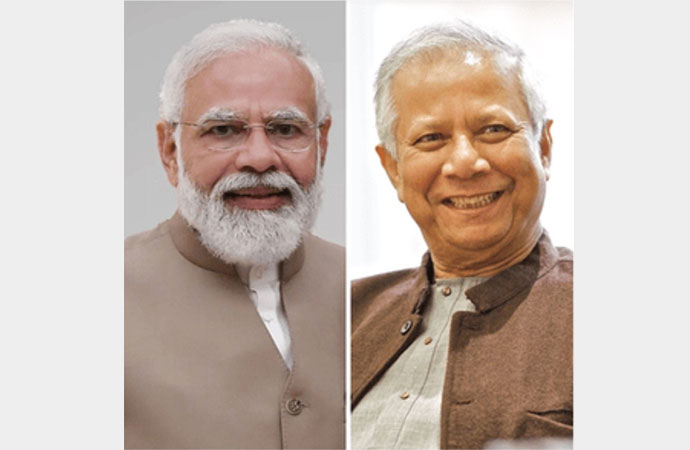
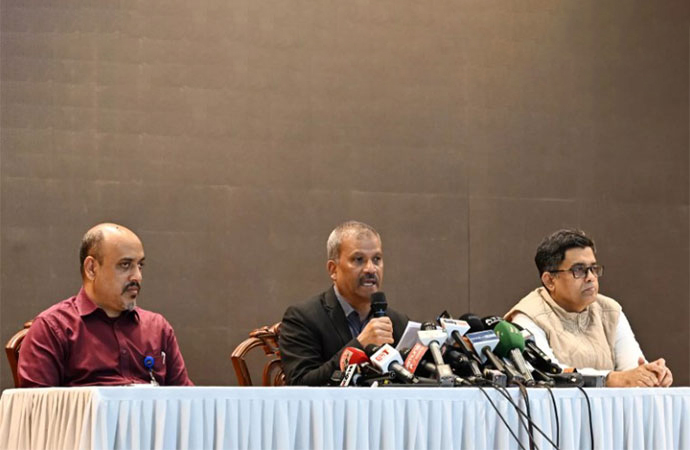
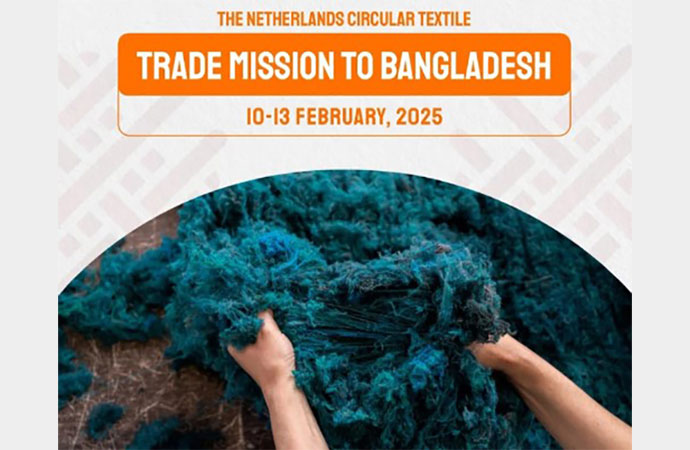
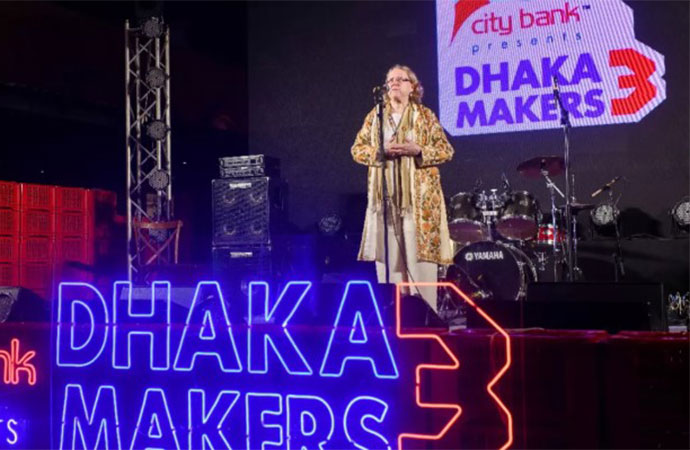
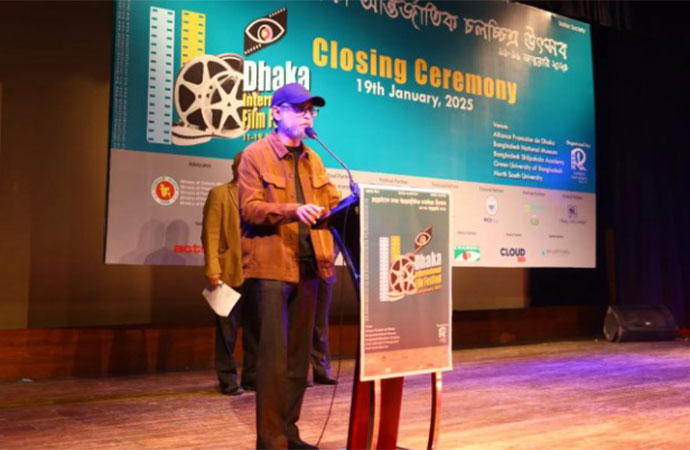
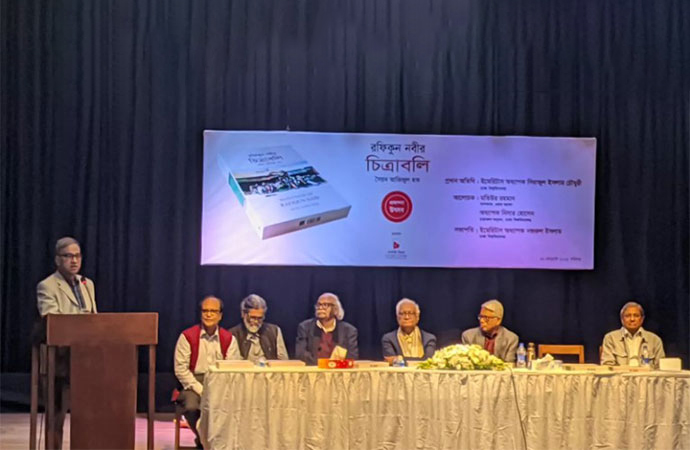






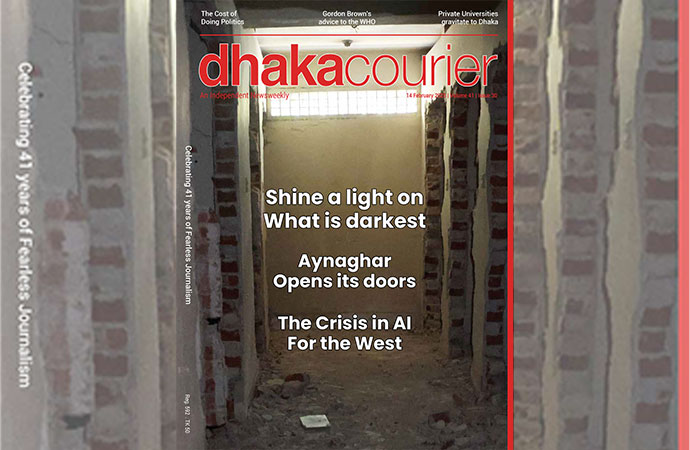
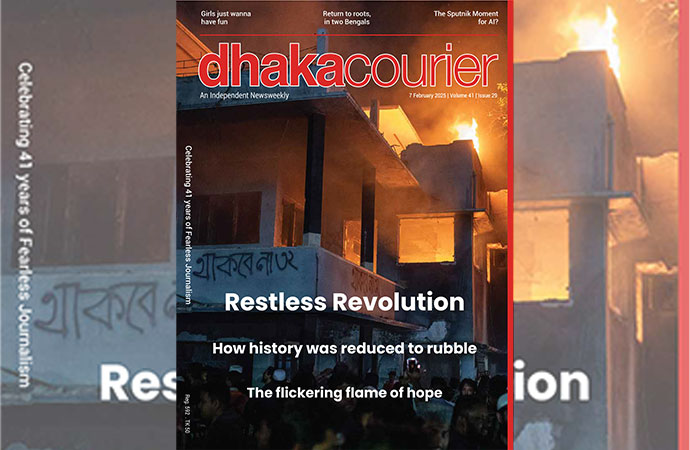
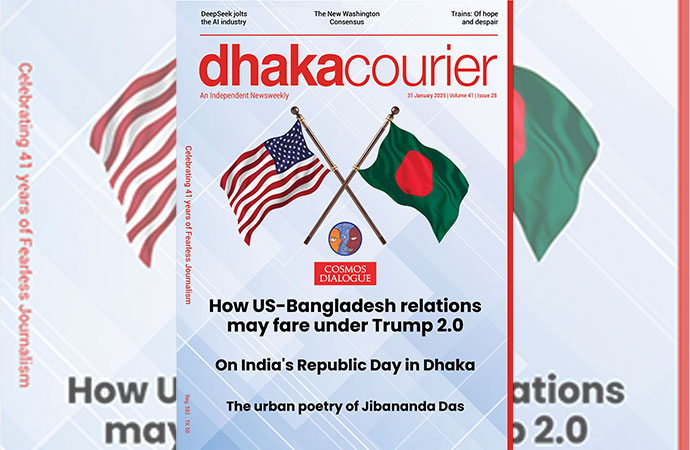
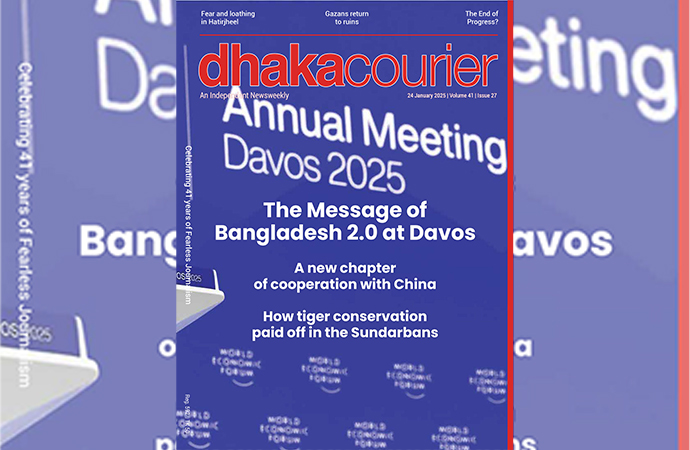
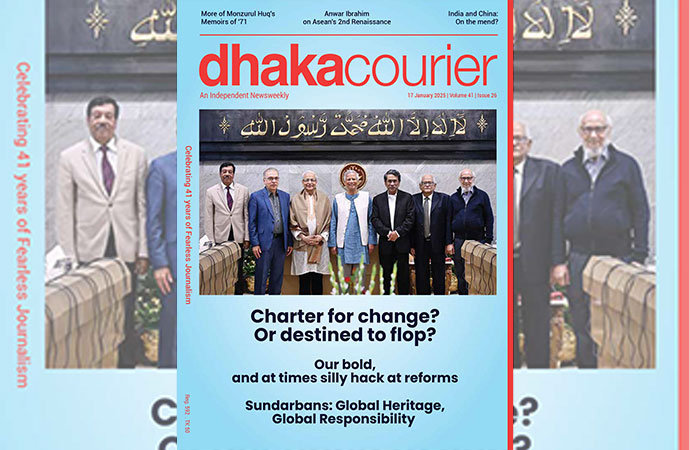
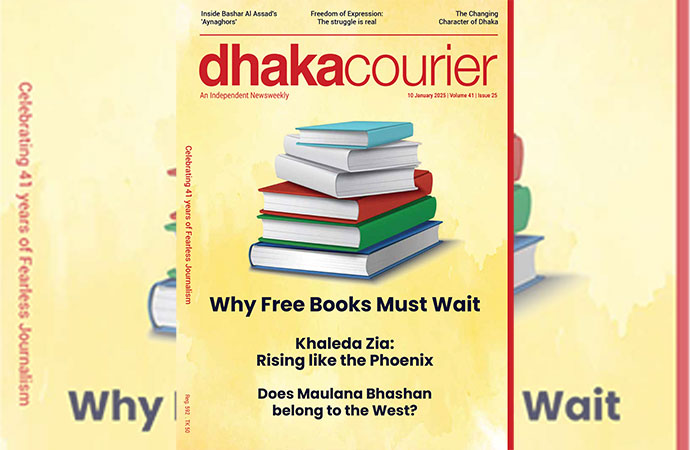
Leave a Comment
Recent Posts
Reflections on Press Freedom
Having been ensconced in the country’s media landscape in a vari ...
Rejuvenating EU ties in an era ...
Ernst B. Haas coined the theory of neo-functionalism to describe the E ...
Farmers Are Not Only Food Producers, They Are Also V ..
10-day 'Amar Ekushey Natyotsab 2025' kicks off at Su ..
How the tables were turned on Ukraine
The New Face of Protest